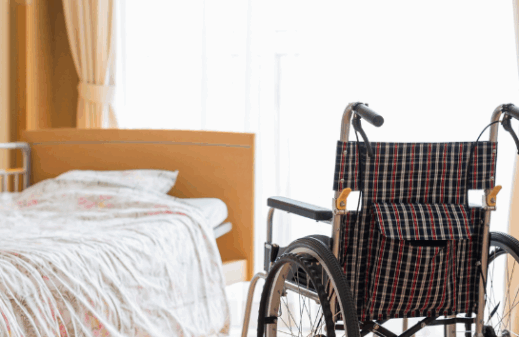Caregivers frequently have to deal with violent patients. In the elderly, dementia may trigger aggressive behavior. Teaching caregivers how to respond to aggressive resident behavior is critical for staff safety and workers’ compensation risk management in adult residential care facilities.
The Link Between Dementia and Aggression
The Alzheimer’s Association says nearly 7 million Americans have Alzheimer’s. By 2050, the number of Americans with Alzheimer’s is expected to reach 13 million. Among people aged 65 and above, approximately one in nine has Alzheimer’s.
Although Alzheimer’s is often associated with memory loss, it also has other effects. For instance, it has been linked to an increase in aggressive behavior. According to the Alzheimer’s Society, aggressive behavior may be a symptom of dementia or, more likely, the result of issues connected to dementia, such as memory loss, physical discomfort, frustration, and confusion. When aggressive behavior occurs, it may take the form of verbal aggression (such as swearing and screaming) or physical aggression (such as hitting, pinching, scratching, biting, hair-pulling, and throwing things).
Violence Against Caregivers
Caregivers work closely with people experiencing mental and physical distress, which often puts them at risk for violence.
According to the BLS, workers in the healthcare and social assistance sectors experience nonfatal injuries intentionally inflicted by another person at a rate of 10.4 incidents per 10,000 full-time workers. This is much higher than the rate of 2.1 incidents per 10,000 full-time workers for all industries. Workers in nursing and residential care facilities experience an even higher rate – 21.1 incidents per 10,000 full-time workers.
Managing and Reducing Resident Aggression
For residential care facilities, screening for aggression is important. According to research published in HealthAffairs, providers should assess the potential for violence when evaluating older patients, as doing so provides the opportunity for appropriate interventions.
In some cases, residential care facilities may be able to reduce the risk of aggression and violence by focusing on the underlying factors that result in outbursts. The Alzheimer’s Society says aggression may occur when a dementia patient’s needs are not being met. Therefore, by addressing the unmet needs, caregivers can reduce the occurrence of aggression. Think about whether you are meeting the following needs:
- Physical – Residents may be in pain or discomfort, experiencing medication side effects, or suffering from vision or hearing loss.
- Psychological – Residents may be depressed or frustrated or feeling frightened.
- Social – Residents may feel disconnected from others or unvalued.
A comfortable environment can go a long way in preventing aggression and violence. The National Institute on Aging lists several ways to reduce aggression among Alzheimer’s patients, including:
- Maintaining routines.
- Reducing noise, clutter, and crowds.
- Limiting caffeine intake.
- Building quiet times into the day.
- Keeping well-loved objects and photographs.
Dealing with Aggression
When a resident displays aggression, caregivers should use strategies to de-escalate the situation and secure their own safety.
According to Verywell Health, caregivers can improve the situation by giving the aggressive dementia patient space and time. It’s also important to refrain from arguing – even if your point is valid, you’re unlikely to win an argument with someone with dementia. Distracting the individual – with music or a favorite television show, for example – may also be effective. Although this may be disruptive to routines, it may be necessary, such as when changing caregivers.
Responding to Violence
If a caregiver is currently being attacked, urgent action is necessary to reduce the risk and severity of an injury.
The National Institute on Aging says a caregiver may need to stay a safe distance from a dementia patient who is displaying aggression until the behavior stops. Although it’s also important to prevent violent residents from harming themselves, caregivers may need to back off to protect themselves. This will give them the opportunity to seek support.
In extreme situations, physical techniques may be necessary. However, the Crisis Prevention Institute says physical restraints should be a last resort. Furthermore, possible actions may be subject to state law. According to The Joint Commission, the use of restraints may injure both patients and staff.
If a caregiver suffers an injury, apply first aid and appropriate medical care immediately, even if the injury seems minor. In particular, take bite wounds seriously. According to Johns Hopkins Medicine, human bites are more likely to become infected than dog or cat bites, due to bacteria in the human mouth.
Aggressive resident behavior is a real threat, but adequate training combined with a comprehensive workers’ compensation program helps adult residential care facilities keep their workers safe. Tangram provides insurance for residential care facilities through the Personal Care & Assisted Living Insurance Center (PCALIC). Learn more.
This article was provided by Tangram Insurance Services.




